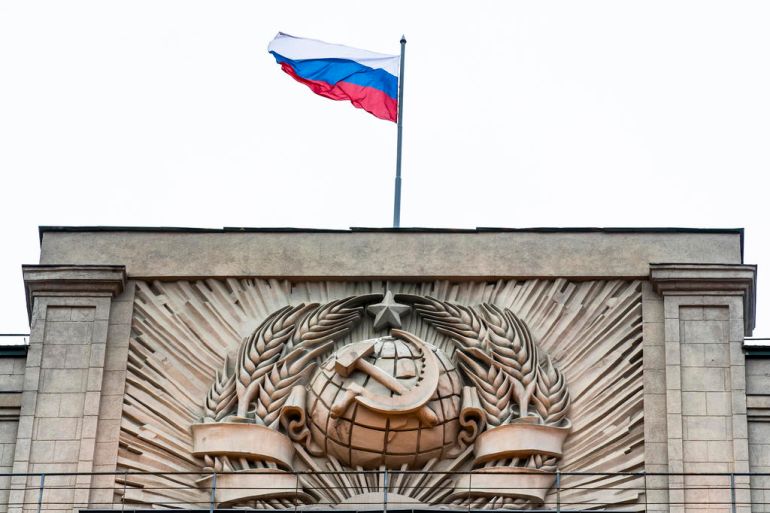Parliament’s lower house backs measure and says it was aimed at upholding the ‘traditional values’ of the country.

Russia’s parliament has given its initial backing to legislation that would ban nationals from countries that allow people to change their gender from adopting Russian children.
The legislature said on Wednesday that the move was essential to uphold the country’s “traditional values” as lawmakers voted almost unanimously to back the proposed law in a first reading, with 397 in favour and one against.
The bill would ban citizens of countries that authorise “the change of sex by medical intervention, including with the use of medicine”, or allow individuals to change their gender on official identity documents.
Russia last year introduced a ban on people legally or medically changing their gender, part of a widening crackdown on LGBTQ rights.
The recent legislation on adoption, which had already been conceptually approved by the government, won the backing of the State Duma, the lower house of parliament, in the first of three readings.
It still needs to be passed in two more readings and approved by the upper chamber before it can be signed into law by President Vladimir Putin.
The bill’s authors cast the measure as an effort aimed at protecting adopted Russian children from what they describe as potentially dangerous conditions in countries that belong to the NATO military alliance, which backs Ukraine in the war against Russia.
“This decision is aimed at protecting childhood and traditional values,” Vyacheslav Volodin, chairman of the Duma and close ally of Putin, said after it had been voted on.
“It is necessary to protect our children from the dangers they may face when they are adopted or fostered by citizens of foreign countries where gender reassignment is allowed,” Volodin added.
Earlier this month, in an interview to Russian media, Volodin said Europe and the United States are “sick” for allowing gender reassignment, attacking people “who were men yesterday and who today call themselves women”.
The foreign adoption of Russian children has fallen drastically since 2012, when Russia banned Americans from adopting. It has virtually stopped completely since it launched a full-scale invasion of Ukraine in 2022.
In 2023, only six Russian children were adopted by foreign citizens, according to official figures, the AFP news agency reported.
According to government figures cited in Russian media, 358,000 children were in care homes at the start of the year.